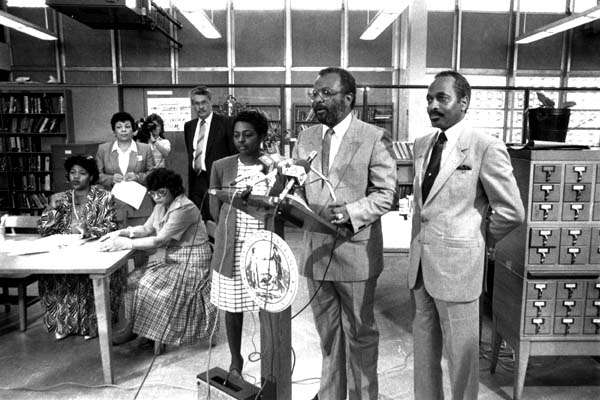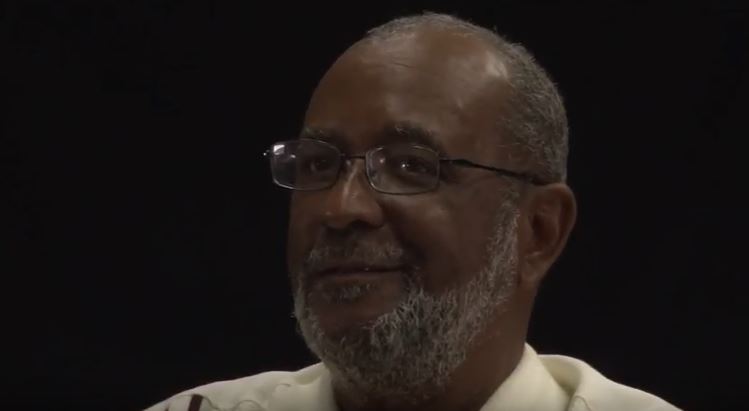Johnny Jackson Jr., a former New Orleans city councilman, state representative and Ninth Ward community leader, died Wednesday. He was 74.
Late Wednesday, Mayor Mitch Landrieu tweeted “My deepest condolences to the family of former Councilmember and Community Leader Johnny Jackson, Jr.”
From 1986 until 1994, Jackson served as the District E representative on the New Orleans City Council, representing New Orleans East and the Lower Ninth Ward. Prior to his two terms at City Hall, he served in the state House of Representatives, for 14 years from 1972 until 1986.
A New Orleans native, Jackson’s was a 1961 graduate of George Washington Carver High School, located in the Desire area, and 1965 graduate of Southern University at New Orleans.
He became director of the Desire Community Center in 1968 and was its leader during the time of the 1970 standoff between New Orleans police and members of the Black Panther Party, who used the center to offer breakfast and tutoring programs for children.
Jackson was elected to the state legislature in 1971, as only the body’s third African-American member, following Ernest “Dutch” Morial, who would later be elected the city’s first African-American mayor, and future City Councilwoman Dorothy Mae Taylor.
“It was a challenging situation for me,” Jackson said in an interview with the University of New Orleans Midlo Center for New Orleans Studies. “There were new doors of not only opportunity but also new doors of challenges to make sure that blacks were involved in all aspects of state government.” Jackson became the New Orleans delegation’s floor leader soon after his election and was a founding member of the state’s Legislative Black Caucus. “I think we got the respect of other legislators who realized we were a force to be dealt with,” he said in the interview. He also served as a delegate to the 1973 convention which rewrote the state constitution.
Jackson said he was recruited to run for the state legislature by members of the Ninth Ward political organization known as SOUL. He was a member of the group and later a founding member of another political group, DAWN, which stood for Development Association for Wards and Neighborhoods.

On the city council, Jackson headed the housing committee and was a strong advocate for his district, seeking economic opportunity and improved city services for residents. He was also known for taking a stand for human rights, drafting legislation aimed at ensuring equal treatment of residents, particularly gay and lesbian rights ordinances. "I pride myself on being a voice of consciousness, but also on having diverse interests," Jackson told The Times-Picayune in 1994.
Jackson was a former board member of Total Community Action Inc., the New Orleans East Economic Development Foundation, Desire-Florida Area Community Council, New Orleans Jazz and Heritage Foundation, WWOZ and the Zulu Social Aid and Pleasure Club.
Jackson was criticized in the 1990s for giving himself a Tulane University legislative scholarship to earn a master’s degree in social work while serving as a state lawmaker. Jackson’s daughters were also awarded scholarships by other politicians. Though he initially defended his decision to give himself the scholarship, he later came to regret the choice. "The prevailing ethics at the time were such that it was not illegal or unethical for me to take the scholarship," he told the newspaper in 1994. "It's not something that I would ever do again."
News of his role in the scholarship scandal likely contributed to Jackson’s loss in a 1994 campaign for an at-large seat on the City Council. After several years in private business, in 2003, he tried to make a political comeback with a run for clerk of Orleans Parish Criminal District Court. He topped the field of 10 candidates in the primary election but lost in a runoff to Kimberly Williamson Butler, the former chief administrative officer to Mayor Ray Nagin.
After Hurricane Katrina hit and the federal levee failure devastated the Ninth Ward and Jackson's home, he spent two days in the Morial Convention Center with relatives before making his way to the West Bank and eventually returning to New Orleans years later, according to a 2007 article in Gambit by author Jason Berry.
Funeral arrangements have not been announced.


